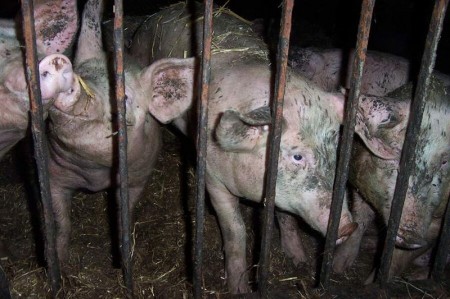(Note: This is a flashback to an old article from 2012, but it is incredibly timely…)
When news broke that the Ebola virus had resurfaced in Uganda, investigators in Canada were making headlines of their own with research indicating the deadly virus may spread between species, through the air.
The team, comprised of researchers from the National Centre for Foreign Animal Disease, the University of Manitoba, and the Public Health Agency of Canada, observed transmission of Ebola from pigs to monkeys. They first inoculated a number of piglets with the Zaire strain of the Ebola virus. Ebola-Zaire is the deadliest strain, with mortality rates up to 90 percent. The piglets were then placed in a room with four cynomolgus macaques, a species of monkey commonly used in laboratories. The animals were separated by wire cages to prevent direct contact between the species.
Within a few days, the inoculated piglets showed clinical signs of infection indicative of Ebola infection. In pigs, Ebola generally causes respiratory illness and increased temperature. Nine days after infection, all piglets appeared to have recovered from the disease.
Within eight days of exposure, two of the four monkeys showed signs of Ebola infection. Four days later, the remaining two monkeys were sick too. It is possible that the first two monkeys infected the other two, but transmission between non-human primates has never before been observed in a lab setting.
(Read the rest of the story here…)
